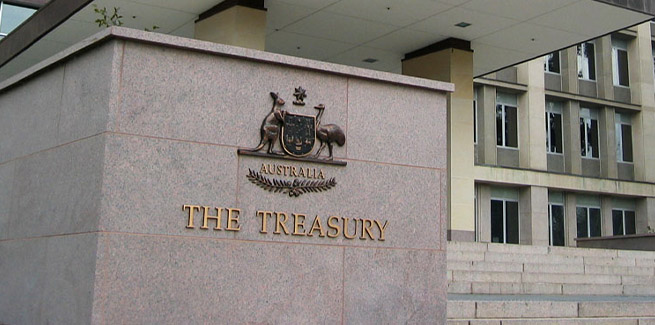On Friday (26 February), the Senate economics legislation committee concluded its hearings for its inquiry into the National Consumer Credit Protection Amendment (Supporting Economic Recovery) Bill 2020.
The bill largely focuses on amending the credit laws so that they remove responsible lending obligations (RLOs) and extend the best interests duty to more credit assistance providers, among other changes.
The chief intention of the removal of the RLOs, as set out by the federal government, is to reduce the time it takes for individuals and small businesses to access credit and streamline lending regulation.
While the finance and property industry have been largely supportive of the repeal of the responsible lending obligations – citing its ability to improve the flow of credit and reduce the amount of red tape in the loan writing process – some concerns have been raised by some non-bank lenders, as well as members of the Labor Party, senators and consumer groups.
Indeed, in its first hearings for the inquiry, consumer and financial counselling groups reiterated their concerns that repealing the current laws would reduce consumer protections.
However, the Treasury fronted the Senate committee on Friday to assuage some of the concerns and clarify the government’s position on why the repeal was necessary.
Speaking to the Senate committee, Treasury chief adviser, markets group, Amy Auster, commented: “When listening to the contributions from witnesses called before this committee, including specific cases that suggest evident misconduct, it can be noted that there are other legal remedies in the [Credit] Act available to consumers who experience misconduct by either ADIs or non-ADIS.”
Ms Auster outlined that the courts may determine that a contract may be unjust, if the credit provider knew or could ascertain through reasonable inquiry that the debtor could not repay the loan “without substantial hardship”, she proffered.
Ms Auster emphasised that the changes to the Credit Act made by the repeal of the responsible lending obligations would actually raise the legal bar from ensuring loans are not “unsuitable” to ensuring that the consumer has capacity to pay without being placed in “substantial hardship”.
The Treasury chief adviser for markets continued: “There are a number of other provisions of the law that support consumer protection, including unconscionable conduct, as well as general conduct obligations that require licensees to do all things necessary to ensure credit activities are engaged in efficiently, honestly and fairly. Potential remedies to these matters can include: injunctions, payments of amount, potential to void contracts, and damages.”
She said: “The legislation was developed using a set of guiding principles that included:
- maintaining a legal requirement that lenders undertake a sound credit assessment in each individual credit decision;
- maintaining the test for sound credit assessment as being: whether the credit would result in the consumer being either unable to meet their obligations, or only able to meet their obligations under substantial hardship;
- maintaining regulatory neutrality between ADIs and non-ADIs in respect of consumer protection;
- enabling scale and flexibility for lenders while retaining consumer protection; and
- maintaining consumers's access to dispute resolution, and redress through AFCA.”
Similarly, Simon Writer, the first assistant secretary of Treasury, added: “Really, the obligation on the lenders hasn’t changed a great deal [in the proposed bill] because they’re still required to make an assessment about the appropriateness of the credit for the consumer. And they are really required to make that assessment before providing credit.
“So, in that sense, the obligation remains consistent across all categories of potential borrowers. Really the question for the lender is that they have a sound basis on which to make that assessment, and they’ll be guided by the [APRA] standard. And there will be a clear set of rules, issued by the regulator to make clear to them, what the required expectation of the test is that they should be applying when offering credit to consumers.”
Treasury also emphasised that since the responsible lending laws were put into place over a decade ago, additional legislation had been passed that afforded more protections to consumers from harm, including the incoming Design and Distribution Obligations, which “have really been aimed at, and I believe have reduced, some of the more egregious examples we have seen in the past”.
The Treasury told the Senate economics legislation committee that overall, the Treasury noted that while consumer advocacy groups favored a more prescriptive approach in regulation, “on balance, industry stakeholders were strongly supportive of recalibrating toward a principles based regime”.
She said: “Information provided [to Treasury] through consultations suggested that regulatory guidance has evolved towards a credit assessment process that is often more onerous than is necessary to establish the credit position of many customers. This cost consumers time and effort.
“The government’s objective is therefore to revitalize the principles-based framework that retains the benefit of responsible lending practices, without imposing the added cost of unnecessary regulation.
“…[T]his particular proposal is about addressing the time and effort that it takes to receive approval on a credit assessment or to undertake credit assessment and have that come to a decision, not necessarily about the overall supply of credit.”
The Senate will now consider the submissions received during consultation and the evidence given during the hearings to complete its inquiry into the repeal of responsible lending and is expected to report back to the chamber on 12 March 2021.
[Related: Concerns raised to Senate on responsible lending changes]
